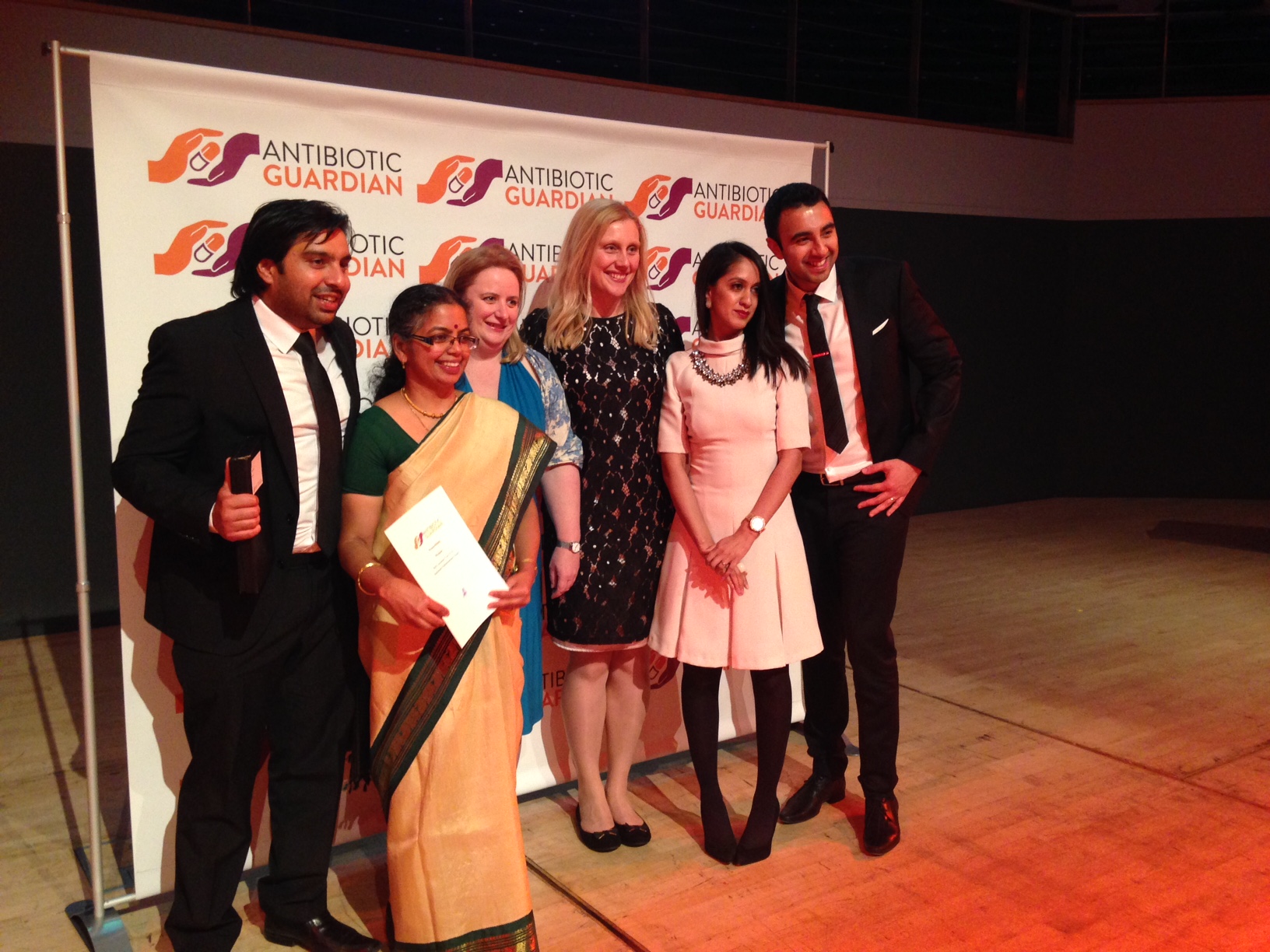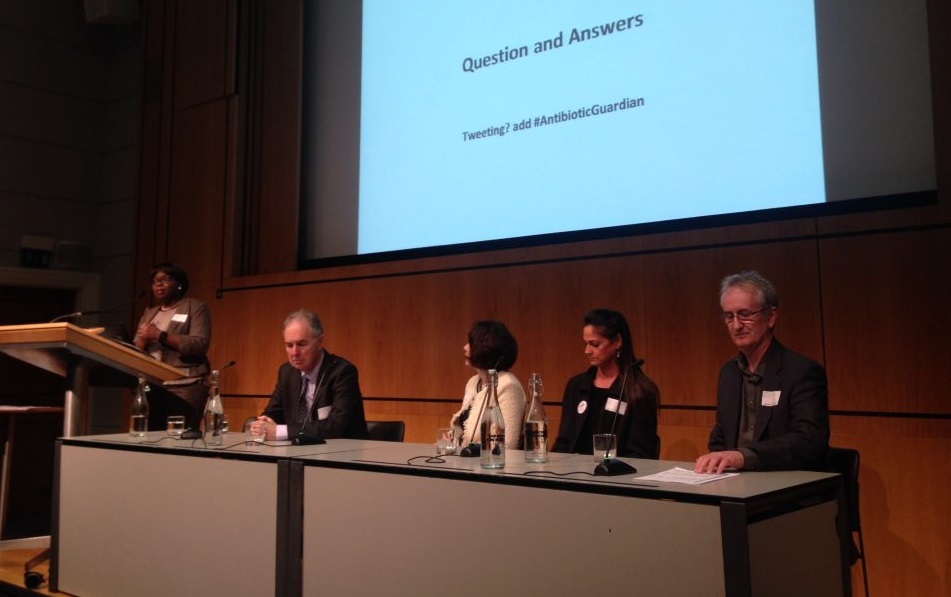Antimicrobial resistance (AMR) is a huge global problem. Bacteria are fighting back by adapting to antibiotics, our drugs are becoming ineffective in treating infections and the number of effective treatment options we have is reducing.
While bacteria are smart and can be become naturally resistant our overuse and misuse of antibiotics is making this worldwide problem worse. It’s a massive threat to our health which is why tackling AMR is one of Public Health England’s 7 priorities.
As part of PHE’s work to advocate action on antibiotic resistance we run the Antibiotic Guardian campaign, a pledge-based initiative asking people to commit to take one simple action to preserve antibiotics, because without effective antibiotics, even minor surgery and routine operations could become high risk procedures.
Alongside using the media, social media and awareness events like European Antibiotic Awareness Day to spread the word, we know we have to look at every possible means of engaging with healthcare professionals and the public.
Debates and roadshows
With this in mind, we organised both public debates and three professional roadshows.
The aim of the professional roadshows was to disseminate the latest information, resources, and guidance and further raise awareness of the threat of AMR. Events have taken place in Leeds, Birmingham and most recently London.
In this blog I wanted to give a brief update on the London roadshow, including what was discussed and what we learned.
I was pleased to see 130 delegates sign up to attend which included GPs, pharmacists, healthy living pharmacy representatives, medical microbiologists and health professionals from across the NHS.
The varied audience matched the wide scope of topics covered during the event, which had 11 speakers.
The World Health Organisation’s Dr Saskia Nahrgang presented a timeline of WHO’s efforts to tackle AMR since 2001 and discussed their European strategic action plan, which was adopted in 2011 and lists 12 specific actions.
She also outlined a number European awareness campaigns, including a great example from Belgium from 2006/7, which decreased sales of antibiotics and, impressively, the campaign’s videos on antimicrobial resistance were the most viewed materials ever on WHO social media channels.
The UK Government’s position was presented by Professor John Watson, Deputy Chief Medical Officer, who stated that whilst AMR is ‘not an issue that people on the street are making noise about’ AMR is now included on the National Risk Register - another reason the Antibiotic Guardian campaign, and events like these roadshows are so important.
‘How do you solve a problem like super gonorrhoea?’ was the title of a presentation given on the increasing burden on public health that gonorrhoea poses. Dr Jan Clarke from the British Association for Sexual Health & HIV explained the risk of gonorrhoea becoming an untreatable disease, as well as explaining the current tests for the Sexually Transmitted Infections and various care pathways.
This has picked up some press coverage lately and at the end of 2015, all GPs received a letter from the Chief Medical Officer about the issue.
And as well as the talks and presentations, the event offered the chance for both the delegates and speakers to engage in healthy discussion with several main topics emerging. To touch on one, here’s an example of a question:
There needs to be a higher focus on the education system, and we all need to contribute. A steer is needed from national bodies to local action.
This allowed us to highlight a resource called e-Bug which has gone out to schools through the PHE primary care unit, and there are ongoing considerations as to how AMR can be added to the national curriculum. You can read more about this in our blog on what it offers and who can use.
By organising events like these, we are able to reach people and interact on a more personal level, which as the positive feedback showed, is important for those working in healthcare.
Future steps
Two roadshows and one public debate will take place over the next year. Between 2016 and 2017, the Antibiotic Guardian campaign will focus on three groups; healthcare students, parents of young children, and the public via community pharmacies. There are also plans to develop a Junior Antibiotic Guardian campaign for children and their families.

The Antibiotic Guardian Awards
On 12 May 2016 we hosted an award ceremony championing organisations and individuals who have demonstrated achievement in the support of Antibiotic Guardian and its aims. We’d like to thank everyone involved in making the awards such a successful evening.
The awards highlighted the wealth of fantastic work taking place across the country in combatting antimicrobial resistance and I’d like to personally congratulate all the nominees and winners for their contributions.

The winners were:
Collaborative stewardship activities
Winner - Calderdale CCG, Greater Huddersfield CCG, North Kirklees CCG, Wakefield CCG, Community Pharmacy West Yorkshire, Kirklees and Wakefield Council Infection
Highly Commended - Berkshire Healthcare Foundation Trust
Community
Winner - Devon County Council, Northern Devon Healthcare Trust, New Devon CCG
Highly Commended - NHS North Kirklees CCG
Innovation
Winner- Southern Derbyshire CCG
Highly Commended - Imperial College Healthcare NHS Trust/ Imperial College London HPRU
Prescribing
Winner - Leicester City CCG Medicines Optimisation Team
Highly Commended- NHS Nene CCG
Research
Winner- Community for Open Antimicrobial Drug Discovery (CO-ADD) (The University of Queensland, Australia)
Staff Engagement
Winner - University Hospital Southampton NHS Foundation Trust
Highly Commended - Dudley Pharmaceutical Health Team, Dudley Office of Public Health,
Dudley Metropolitan Borough Council
Stewardship
Winner - North of England Commissioning Unit
Highly Commended - Derby Hospital NHS Foundation Trust

